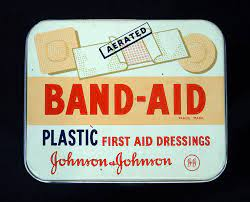15 future jobs
1. ORGAN CREATOR
The shortage of transplantable organs will, eventually, lead scientists to create organs and body parts from stem cells and other materials, including some that may not even exist yet. Recruiters will be searching for candidates with a background in molecular biology, tissue engineering, or biomedical engineering.
2. AUGMENTED-REALITY JOURNEY BUILER
AR journey builders will allow customers to experience virtually anything they wish. The AR journey builders will design, write, create, calibrate, gamify, build, and — most importantly — personalize the mind-blowing stories for clients. The position will demand a film school degree as well as experience with massively multiplayer online role-playing games.
3. BIOFILM INSTALLER
Biofilms — collections of microbial cells attached to wet surfaces — are a remarkable tool for sewage treatment, oil spill cleanup, and generating power. By coating certain surfaces in the bathroom and kitchen of homes, they will become key tools for environmentally friendly buildings. It’s possible that biofilm installers will fit showers with microbes that attack bathroom mildew or, more broadly, equip homes with a living organism to process the garbage.
4. ALGORITHM BIAS AUDITORS
Algorithms drive much of 21st-century life, from the musical choices to the dating options. The contemporary hiring process is also powered by them. Verification through audits will help ensure the future workforce is also the fair workforce. Algorithm bias auditors will have a background in computer science or data analytics.
5. REWILDER
These are the radical transformers who will potentially turn a concrete jungle into a green belt. Rewilders will focus on undoing the blight of two centuries of industrial revolution, replacing aging factories and unneeded buildings, roads, and fences with forests and native species. Rewilders will likely have a background in agriculture, wildlife management, and environmental science.
6. DIGITAL CURRENCY ADVISOR
With the soaring interest in cryptocurrencies such as Bitcoin, Litecoin, and Ethereum, investors now have enormous opportunities — and potential exposure — in unregulated financial instruments. Digital currency advisors specialize in these currencies and show people how to manage their wealth by using the right balance of systems. Digital currency advisors will have backgrounds in accounting, financial management, and data security.
7. DRONE TEAFFIC OPTIMIZER
Once a novelty, drones today are filming our movies and fighting our wars, policing our neighborhoods, and delivering our packages. They will be everywhere and someone will need to oversee their flight paths so they don’t begin to wreak complete havoc. In the United States, NASA and the FAA are working on this issue at a national level. The drone traffic optimizers will handle at a local level.
8. SMART HOME DESIGN MANAGERS
Current homes can control their own lighting, temperature, and security. The rise of smart home design managers will boom as homes are built — or retrofitted — with dedicated home office spaces, replete with routers in the right place, soundproofing, separate voice-driven entrances. These managers will be “home-schooled” with advanced degrees in AI, robotics, and residential architecture.
9. AGILE SUPPLY CHAIN WORKER
In a global and online economy, businesses will increasingly need to respond in real time to fluctuations in both supply (where can I get parts faster, cheaper, of better quality?) and demand (why the sudden interest for our product in Southeast Asia?). Companies need people who constantly scout out new sources for materials and components and connect company supply lines on the fly to keep costs low and turnaround fast. Recruiters will look for candidates who’ve studied supply chain management and logistics at business school.
10. TRASH ENGINEER / GARBAGE DESIGNER
Humans produce a huge amount of waste every day and we’re running out of places to stash our trash. But to those who say there’s no way out of this mess, our future trash engineers say, “Rubbish!” Garbage designers . . . will be charged with coming up with clever methods to upcycle trash on a large scale, and manufacturers of everything from toys to clothes to furniture will hire them to find more efficient ways to use and reuse their byproducts. A background in materials science and industrial design will be needed for those who dream of nothing less than cleaning up the world.
 2) The steam engine?
2) The steam engine?























